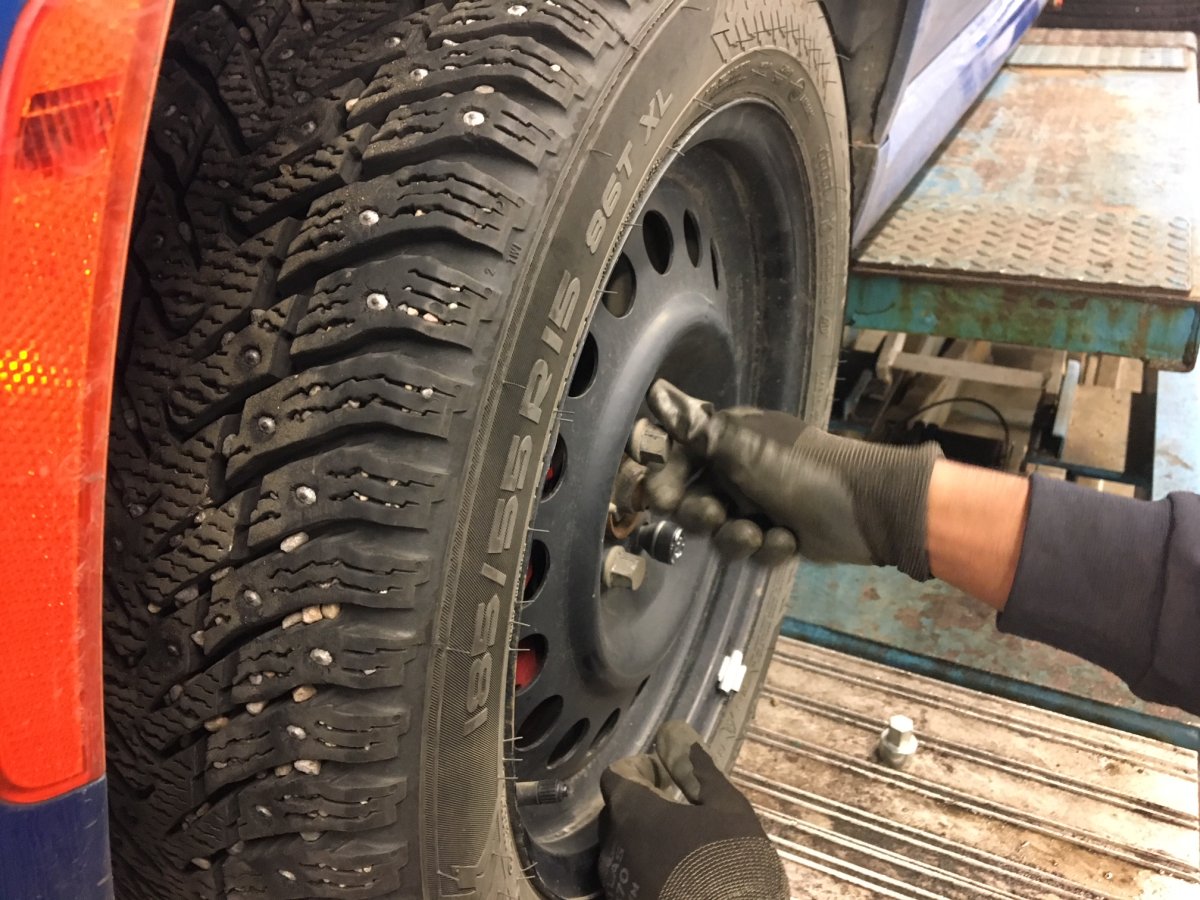As the novel coronavirus pandemic has people sheltering in place as much as possible, a local auto shop is reminding the public to think twice about which tasks they can do at home and which should still be handled by experts.

Jeremy Hanford of Hanford’s Tire & Service says his operation has changed its “whole process” as a result of the pandemic.
Staff don’t touch keys, vehicles are disinfected when they get in and out, and communications are now handled digitally or over the phone.
“We’re all in this together. Every shop has their policies as far as waiting in the shop or not waiting in the shop — we can’t allow waiters in our shop,” he explained.
“Be patient with us. We’re doing the best we can. We will take every precaution possible and all shops out there right now are doing the same thing. If we all just be a little more patient with each other I think we’ll get through this.”
While it’s important that people do not take unnecessary trips in an effort to flatten the curve, Hanford adds that even some tasks that are considered “easy” can result in complications.
“There are definitely differing degrees of what’s a safety thing and what’s just potentially going to cost you more money as far as trying to fix something and actually making the situation worse,” he said.
“But there are a lot of things that people may take for granted as being an easy task that really isn’t that easy.”
For example, he said if tires aren’t installed correctly, there is the potential that they could come off while driving.
- ‘She gets to be 10’: Ontario child’s heart donated to girl the same age
- Bird flu risk to humans an ‘enormous concern,’ WHO says. Here’s what to know
- Shoppers faces proposed class action over claims company is ‘abusive’ to pharmacists
- Most Canadian youth visit dentists, but lack of insurance a barrier
“That tire, when it propels off the vehicle it will actually pick up speed,” he explained.
“It’s very, very important when changing tires that you make sure those backs of the wheels are clean and those are torqued and re-torqued after you put them on.”
Questions about COVID-19? Here are some things you need to know:
Health officials caution against all international travel. Returning travellers are legally obligated to self-isolate for 14 days, beginning March 26, in case they develop symptoms and to prevent spreading the virus to others. Some provinces and territories have also implemented additional recommendations or enforcement measures to ensure those returning to the area self-isolate.
Symptoms can include fever, cough and difficulty breathing — very similar to a cold or flu. Some people can develop a more severe illness. People most at risk of this include older adults and people with severe chronic medical conditions like heart, lung or kidney disease. If you develop symptoms, contact public health authorities.
To prevent the virus from spreading, experts recommend frequent handwashing and coughing into your sleeve. They also recommend minimizing contact with others, staying home as much as possible and maintaining a distance of two metres from other people if you go out.
For full COVID-19 coverage from Global News, click here.












Comments